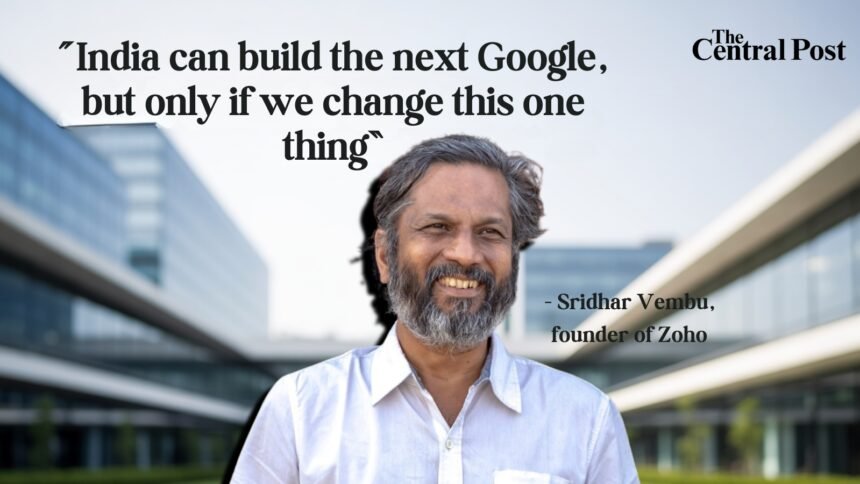New Delhi: Sridhar Vembu, the founder of Zoho Corporation, had given his candid ideas as to why India has not yet created a global technology company like Google or Meta. His response was straight yet strong and this is that India does not wholly feel that it has the capabilities.
Vembu claimed that over several years, it has been in the minds of people in India that they lacked knowledge or skill to produce world-class products. But his personal experience with Zoho declared otherwise. He described the way we designed every product as what we learned in the process of designing it, and the only way he could learn was to try it, not to know everything upfront before entering into the design.
Vembu is convinced that India is powerful in her countryside where a lot of talented individuals are in the location but are not recognized. He affirmed that this talent should be identified and honored by the educated echelon in India. It is not until we accept the fact of the ultimate source of our talent, that we can dream big.

To advance this vision, Zoho has been establishing offices in small towns and villages rather than in the major cities only. It does not only provide the jobs but also enables individuals to take up work near their homes and build their communities.
The journey beyond Arattai and ZOHO
Speaking of the chat application of Zoho, Arattai, Vembu replied that it is young. He does not promise much and likes to concentrate on the consistent developments. He also said his team is developing open systems that will enable other developers and companies to communicate with each other at will, which in his opinion India can lead the world in.
Vembu also spoke about what he calls “Dharmic Capitalism”, doing business in a fair and responsible way. According to him, a company should not only focus on selling and profit but should also think about what is right. “If someone doesn’t have money, we should help them, not try to sell to them,” he said.
Following this idea, Zoho even accepts payments in local currencies in poorer countries, instead of demanding dollars like many other global companies. Vembu says this helps such countries manage their economy better and builds trust. His message is clear: India’s next big innovation will not come from copying others, but from believing in itself.
Also Read: Reliance to announce Q2 results on October 17, will the numbers fall short?


















